For Online Business Builders & Network Marketers Only
100% FREE MASTERCLASS
Get Leads, Clients, and Sales:
The MAGIC Marketing System That Attracts Pre-Qualified Prospects Who Come to YOU
Join Me LIVE To Learn:
- Why 90% of Online Marketing Fails (And the Simple Shifts That Turn It Around)
- My Proven MAGIC Marketing Method That's Generated Hundreds of Thousands of Qualified Leads for Over 300 Business Owners
- How To Create Content That Gets REAL Engagement & Attracts People Already Looking for What You Offer
- The Framework for Building a Business That Grows Even When You're Not Glued to Social Media
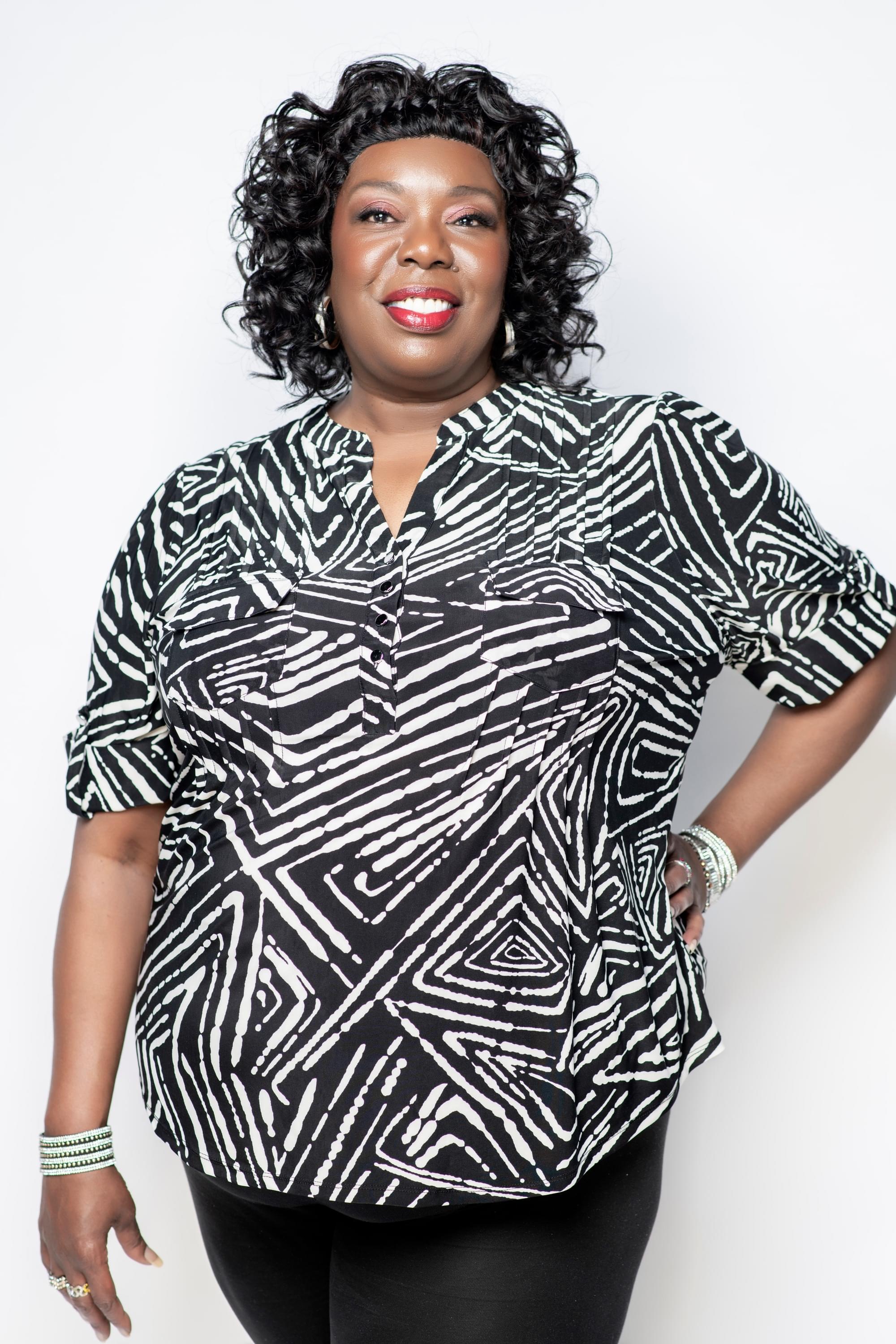
7:35 PM EDT
Next Session Starts In:
0
days
0
hours
0
minutes
0
seconds
Enter your info below to Join Now, or...
Use the drop-down to choose a time.
🎁FREE GIFT: All attendees will get my Custom GPT that Instantly Creates High Converting Content for Any Platform — So You Can Focus On Closing Sales, Not Creating Social Posts! ($497 Value)
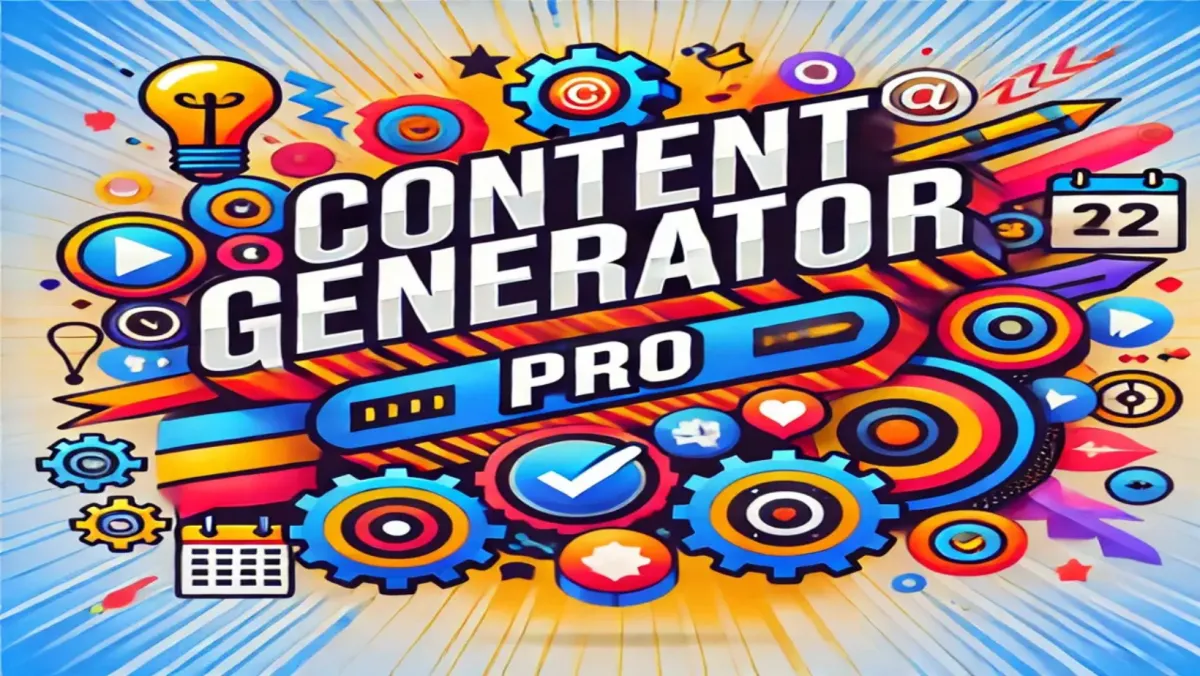
Want to see what it's like working with me...???

Faith Based Transformational Business Coach

Retired Military and Travel Business Owner
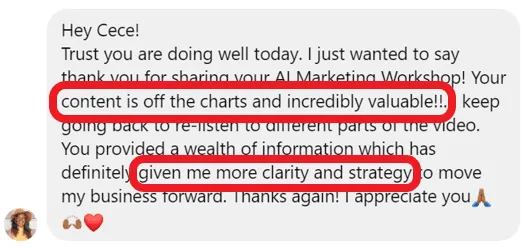
Dr. Ola, Family Practice Physician and Founder of VIP Speaker Studio Experience
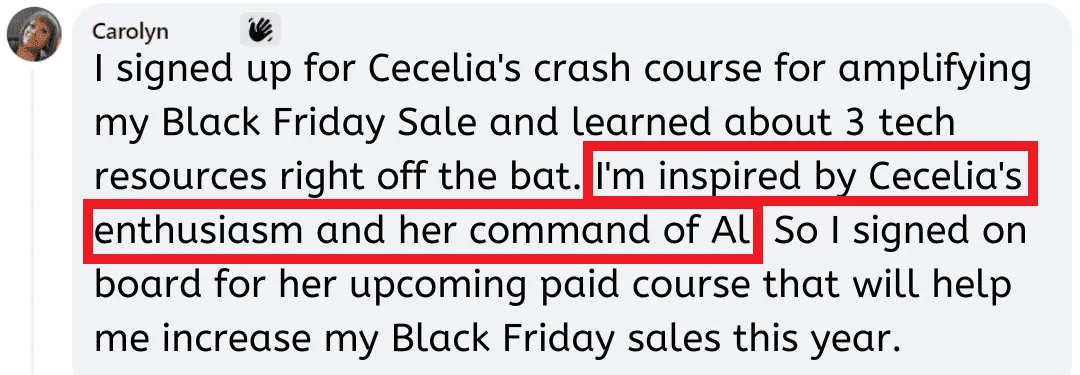
Professional Esthetician and Business Owner

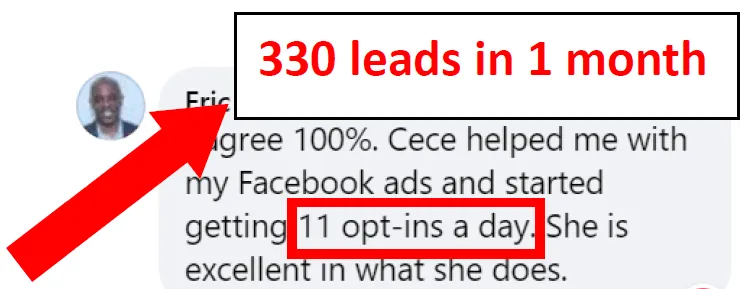
Award-Winning Speaker, Best-Selling Author, and Network Marketer

Certified Transformational & Faith Coach, Vision Board Workshop Facilitator, Motivational Speaker
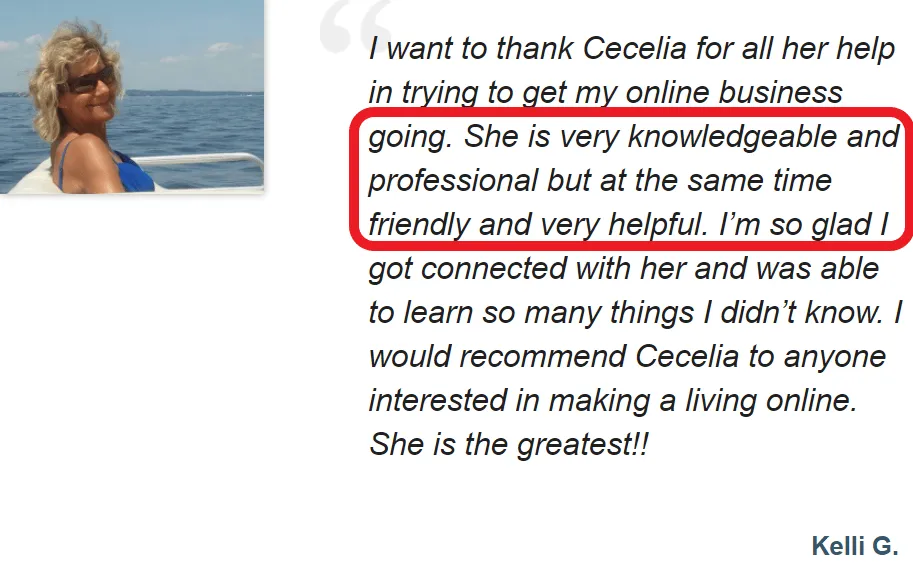
Grandmother, Travel Agency Owner
Reggie, Realtor and Network Marketer
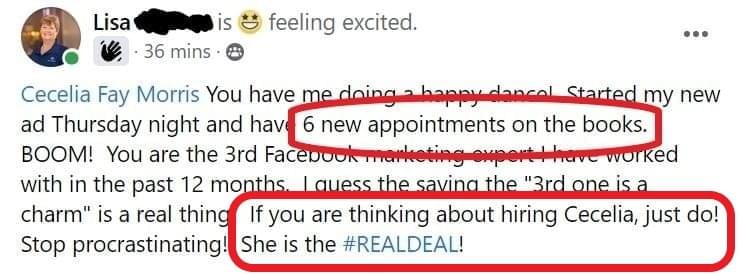
Essentials of Trinity Salon and Spa Owner
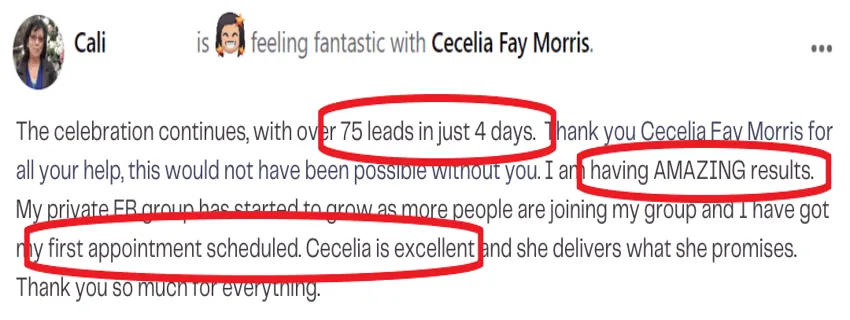
Medical Professional and Network Marketing Business Owner
Imagine waking up every day knowing that your brand is growing, your influence is expanding, and your target audience is looking for YOU!
© All Rights Reserved | Success With Cecelia | Terms & Conditions | Privacy Policy